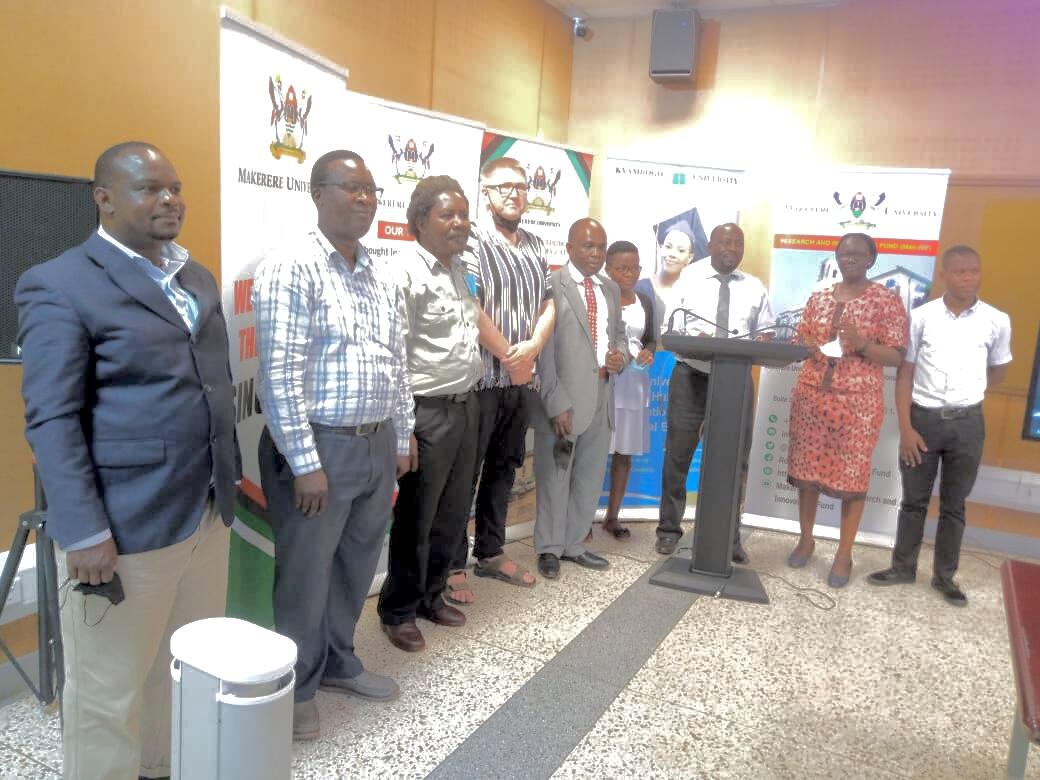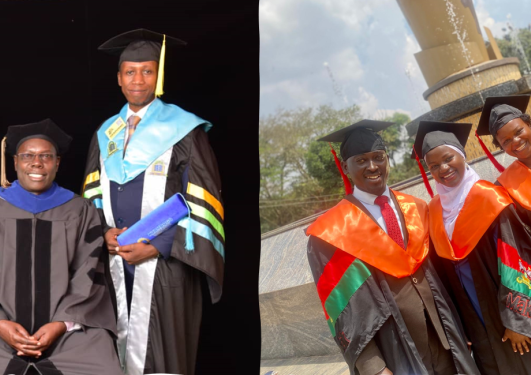The 1st East African Teacher Education Symposium: Challenges and Opportunities in Teacher Education
Hovedinnhold
The East African Teacher Education Symposium (EATES) is an annual international symposium for educational research related to teacher education. The symposium addresses the situation in and development of teacher education in Uganda, but also seeks to include a regional perspective on teacher education within The East African Community (Burundi, Kenya, Rwanda, South Sudan, and Tanzania). The symposium aims to present high-quality research with relevance for teacher education in Uganda and the East African region, and to be an international platform for developing new research on and collaboration in teacher education.
The 1st East African Teacher Education Symposium will be held online on Wednesday November 10 and Thursday November 11, 2021. The symposium welcomes proposals that investigate topics of relevance for East African Teacher Education under the symposium theme "Challenges and Opportunities in Teacher Education". The topics of interest include, but are not limited to:
- The Role of Indigenous Knowledge and Learning in Teacher Education
- Digitalisation of the Education System: Implication for Teacher Education
- Teacher Education for Empowerment
For any technical assistance getting into the symposium during these two days, please send a message or sms to this WhatsApp-number: +256 758 340296
EATES 2021-PROGRAMME
WEDNESDAY, NOVEMBER 10:
08:00: Participants Logging in
09:00-09:15: Official opening, welcoming participants, presenting CABUTE, Project PI Steinar Sætre & Ugandan PI Paul Muyinda (Zoom Room 1)
09:15: Welcome remarks from Principal, CEES
09:30: Welcome remarks from VC
09:30-10:00: KEYNOTE PRESENTATION: Uganda National Teacher Policy 2019: Implications for Teacher Education in the Country, State Minister for Higher Education, Dr. John Chrysestom Muyingo (Zoom Room 1)
10:00-10:15: Q+A based on Presentation from the MoES (Zoom Room 1) Moderator: Dr. Paul Birevu Muyinda
10:15-10:30: BREAK
10:30-11:00: PAPER PRESENTATIONS (Parallel sessions)
Michael Walimbwa:21st Century technology and training teachers in partnering pedagogy (Zoom Room 1) Moderator: Dr. Patrick Mangeni
Kenneth Bamuturaki: Implementing the Language Across the Curriculum model in teaching and learning of music in Uganda: Reflecting on practices, challenges, and prospects (Zoom Room 2. Moderator: Professor David Hebert
11:00-11:30: PAPER PRESENTATIONS (Parallel sessions)
- Mary Najjengo/Alfred Buluma: Role of Parents Promoting Online and Home based Learning of Early Grade Learners. A Systematic Literature Review (Zoom Room 1) Moderator: Dr. Patrick Mangeni
- Rockline Ntambirwa: Assessing the Impact of Music Teacher Education on the Nature of Participation in School-based Music Activities by Learners with Special Needs in Uganda (Zoom Room 2) Moderator: Professor David Hebert
11:30-11:45: BREAK
PAPER PRESENTATIONS (Joint session)
11:45-12:15:
- Milton Wabyona: Trends in Music Teacher Preparation in Uganda from 1950-2020: An Historical Study Moderator: Dr. Kyazike Elizabeth (Zoom Room 1)
PAPER PRESENTATIONS (Parallel sessions)
12:15-12:45:
- Katamba Allan Benjamin: The Role of Indigenous Knowledge and Learning in Teacher Education Case Study Mengo Senior School (Zoom Room 1) Moderator: Dr. Kyazike Elizabeth
- James Isabirye: Rethinking music teacher education, centering indigenous epistemes: Insights from Entongooli (Bowl Lyre) project in Busoga, Uganda (Zoom Room 2) Moderator: Professor David Hebert
12:45-13:00: SUMMARIZING DAY 1 (Zoom Room 1) Moderator: Dr. Ssempijja Nicholas and Professor David Hebert
THURSDAY NOVEMBER 11:
09:00-09:45: KEYNOTE PRESENTATION: Reflections on the Digitalized 21st Century Classroom: Implications for the Teacher Education Programs in East Africa Dr. Ciriaka Gitonga, Embu University, Kenya (Zoom Room 1)
09:45-10:10: Q + A (Zoom Room 1) Moderator: Dr. Kenneth Bamuturaki
10:10-10:30: BREAK
10:30-11:00: PAPER PRESENTATIONS (Parallel session)
- Takako Mino/Prince Paa-Kwesi Heto: Learning from indigenous knowledge in Ghana (Zoom Room 1) Moderator: Dr. Mathias Mulumba
- Nicholas Ssempijja: Approaches to Music Instruction from an Indigenous Perspective: Challenges and Prospects for the Ugandan Learners (Zoom Room 2) Moderator: Professor David Hebert
11:00-11:30: PAPER PRESENTATIONS (Parallel sessions)
- Juliet Ssessanga: How Mbaga is articulated through Indigenous Education (Zoom Room 1) Moderator: Dr. Mathias Mulumba
- Nambirige Catherine Bwanika: Using Music Technology in the teaching of traditional music in Primary schools. A case study of selected schools in Kampala District, Central region (Zoom Room 2) Moderator: Professor David Hebert
11:30-11:45: BREAK
11:45-12:00: Presenting NORHED II-project Mathematics for sustainable development (Zoom Room 1) Dr. John Mango
12:00-12:30: PAPER PRESENTATIONS (Parallel sessions)
- Alfred Buluma/Micheal Mwebaza: School as a safe haven for children: Perspectives of Pre – Service Teacher Trainees on Violence Against Children in Uganda’s Education System (Zoom Room 1) Moderator: Dr. Kjersti Lea
- Erisa Walubo: Music Education curriculum and the Primary Teacher Education graduates in Uganda: A Case of Mbale District (Zoom Room 2) Moderator: Professor David Hebert
12:30-12:40: BREAK
12:40-13:00: Plenary summary of the symposium (Zoom Room 1) Moderator: Dr. Betty Ezati and Project PI Steinar Sætre
ZOOM-LINKS TO THE SYMPOSIUM
| Day | Zoom Room 1-ID | Zoom Room 1-Password | Zoom Room 2-ID | Zoom Room 2-Password |
| Wednesday, Nov 10 | 953 1742 5810 | EATES2021 | 620 0483 8186 | |
| Thursday, Nov 11 | 953 1742 5810 | EATES2021 | 617 4673 0272 | EATES2021 |
SUBMISSION GUIDELINES
We invite proposals on any topic relevant to the conference theme. Submissions are limited to one abstract per person. Each talk selected for presentation will be allotted 20 minutes followed by 10 minutes of discussion. Abstracts have to be written in English and should not exceed 350 words excluding the reference list. Proposals should include the title of the talk, name of author and affiliation, email address, a short biography (max 100 words), and up to five keywords.
Submissions deadline was October 11th, 2021.

